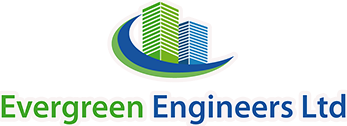For individuals applying for visas to live or work in the United Kingdom, meeting immigration standards is crucial. One of the essential requirements is often a property inspection report, which verifies that the accommodation meets certain standards set by UK Visas and Immigration (UKVI). This blog provides an in-depth overview of property inspection reports, their importance in the immigration process, what they entail, and how to ensure your home meets UK immigration standards.
Understanding the Importance of a Property Inspection Report
A property inspection report serves as evidence to demonstrate that the applicant’s accommodation meets specific standards required by UKVI. This report is particularly necessary for visa categories that require proof of suitable accommodation, such as:
Family Visas: Spouse, partner, or family reunion visas.
Work Visas: Tier 2 (General) visas for skilled workers, among others.
Student Visas: Tier 4 visas for students studying in the UK.
By obtaining a property inspection report, applicants can show UKVI that their intended accommodation is safe, habitable, and meets the minimum standards for living conditions in the UK.
What Does a Property Inspection Report Include?
A property inspection report typically covers various aspects of the accommodation to ensure it meets UK immigration standards. These include:
Structural Integrity: Assessment of the property’s structure to confirm it is safe and in good condition.
Habitability: Verification that the accommodation provides suitable living conditions, including adequate space and amenities for the number of occupants.
Safety and Security: Checks for safety features such as smoke alarms, secure doors and windows, and compliance with fire safety regulations.
Utilities and Amenities: Confirmation that essential utilities (water, gas, electricity) are in working order and that amenities such as heating and sanitation meet UK standards.
Verification of Ownership or Tenancy: Evidence that the applicant has the right to reside in the property, whether through ownership or a legitimate tenancy agreement.
Who Can Conduct a Property Inspection?
Property inspections must be conducted by qualified professionals who are recognized by UKVI. These may include:
Chartered Surveyors: Qualified to assess the condition and value of properties.
Accredited Landlords: Registered landlords who can provide evidence of compliance with housing regulations.
Home Inspectors: Experienced professionals trained to evaluate residential properties.
It is essential to ensure that the inspector conducting the assessment is accredited and recognized by UKVI to avoid any complications during the visa application process.
Steps to Ensure Your Home Meets UK Immigration Standards
To prepare for a property inspection report and ensure your home meets UK immigration standards, consider the following steps:
- Pre-Inspection Preparation
Review Requirements: Familiarize yourself with UKVI’s accommodation standards for your specific visa category.
Address Maintenance Issues: Fix any structural or maintenance issues that could affect the property’s habitability and safety.
- Documentation and Evidence
Ownership or Tenancy: Gather documents proving your right to occupy the property, such as a tenancy agreement or property ownership documents.
Utility Bills: Ensure utility bills are up-to-date and provide evidence of service connections (water, gas, electricity).
- Schedule the Inspection
Choose a Qualified Inspector: Select an accredited professional recognized by UKVI to conduct the inspection.
Coordinate with Tenants: If renting, coordinate with tenants to schedule the inspection at a convenient time.
- During the Inspection
Accompany the Inspector: Be present during the inspection to address any questions and provide access to all areas of the property.
Provide Documentation: Have all necessary documents and evidence ready for the inspector’s review.
- Post-Inspection Follow-Up
Address Recommendations: If the inspector identifies any deficiencies, address them promptly to meet UKVI standards.
Obtain the Report: Once the inspection is complete, obtain a copy of the property inspection report from the inspector.
A property inspection report is a critical component of the UK visa application process, ensuring that the accommodation meets necessary standards for safety, habitability, and legality. By understanding the requirements, preparing adequately, and working with qualified professionals, applicants can navigate this aspect of the immigration process smoothly. Whether renting or owning, ensuring your home meets UK immigration standards through a comprehensive property inspection report is essential for a successful visa application and a smooth transition to living in the UK.
For more information you can contact us or call us at 07500242494 / 020 3129 5156.




